I Was Married To A Narcissist For 20 Years—Here’s What I Learned
Being married to a narcissist for two decades taught me lessons I never thought I would learn. From the chaotic emotional rollercoasters to the quiet realizations of self-worth, each moment was a stepping stone.
These experiences are deeply personal, shared in the hope they resonate with others who walk a similar path. Here are 18 things I learned from my 20 years of marriage to a narcissist, each one a testament to survival and growth.
1. Love and manipulation can feel the same when you’re in it

Love and manipulation are deceptively similar when you’re deeply entangled. The sweetness of affection quickly becomes a tool for control, blurring the lines between genuine care and self-serving actions. In the throes of it, discernment becomes an almost impossible task.
He would shower me with love in public, only to retreat into criticism behind closed doors. This cycle of praise and punishment kept me tethered, believing each affectionate gesture was sincere. It took years to realize that love should not come with strings attached.
The turning point was understanding that genuine love doesn’t manipulate; it supports and nurtures without condition. Recognizing manipulation for what it was became my first step toward breaking free. Love, I learned, should never feel like a battle for approval. It’s a lesson I carry with me, a reminder to seek relationships rooted in true respect and equality.
2. Apologies without change are just words

Early in our marriage, apologies were frequent but hollow. Each “I’m sorry” was a temporary balm for deeper wounds, offering the illusion of resolution without genuine remorse. His words promised change, yet actions rarely followed, leaving me trapped in a cycle of hope and disappointment.
I learned that true apologies come with accountability and a commitment to change. Words without action are mere echoes, perpetuating the same patterns without progress. His apologies were often more about easing his conscience than mending our relationship.
Eventually, I stopped accepting apologies that came without transformation. This realization empowered me to seek authenticity, both within myself and in others. It taught me the importance of actions over words, and that forgiveness doesn’t mean forgetting. Apologies should be a bridge to change, not a wall to hide behind.
3. Being loyal doesn’t mean being silent

For years, I equated loyalty with silence, believing my role was to endure quietly. This misconception meant my voice was often stifled by the desire to maintain marital harmony. However, silence only served to enable narcissistic behavior, leaving me voiceless and complicit.
Loyalty doesn’t require silence; it demands honesty and courage to speak up against wrongs. When I finally found my voice, it was liberating. I realized that true loyalty is standing firm for what is just, not blindly supporting harmful actions.
Speaking up became an act of self-respect, a declaration that I deserved to be heard. Loyalty should not come at the cost of self-betrayal. It taught me that relationships should be a dialogue, not a monologue, where both voices matter equally. Silence no longer equates to loyalty in my world.
4. I didn’t need to lose myself to keep the peace
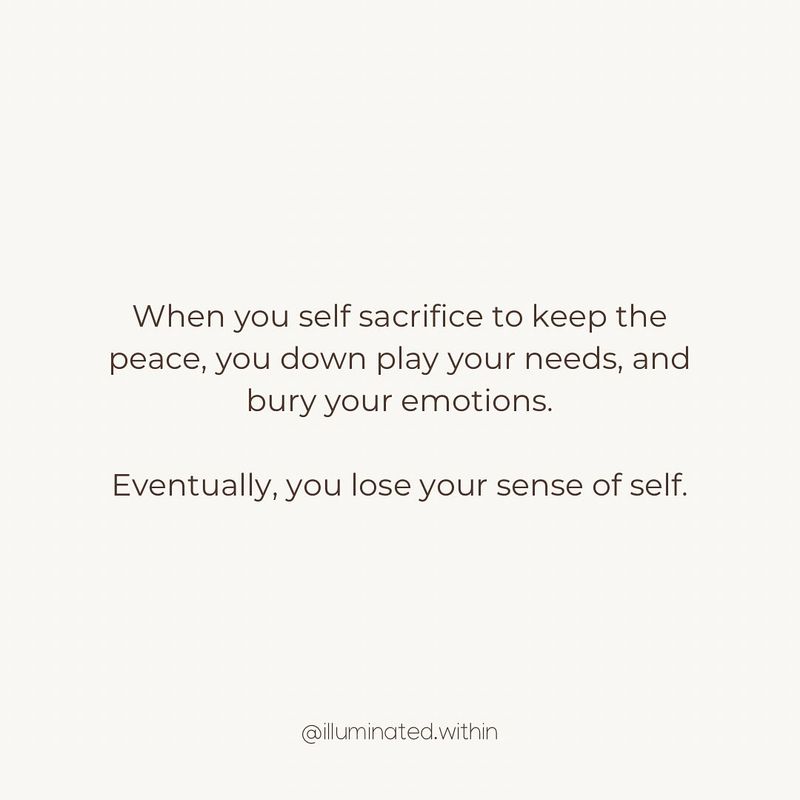
In my marriage, peace often came at the expense of my identity. To avoid conflict, I became adept at suppressing my desires, molding myself into someone I barely recognized. This self-erasure felt necessary but ultimately proved unsustainable.
I realized that peace should not require self-sacrifice. True harmony respects individuality while fostering mutual understanding. Losing oneself to maintain peace is a false compromise, benefiting the narcissist at your expense.
Reclaiming my identity was a gradual, painful process but it was crucial for my well-being. I learned that authentic peace comes from embracing who you are, not who you’re expected to be. My journey taught me the importance of self-preservation in harmonious relationships, a lesson I now hold dear.
5. The charm wasn’t love—it was control
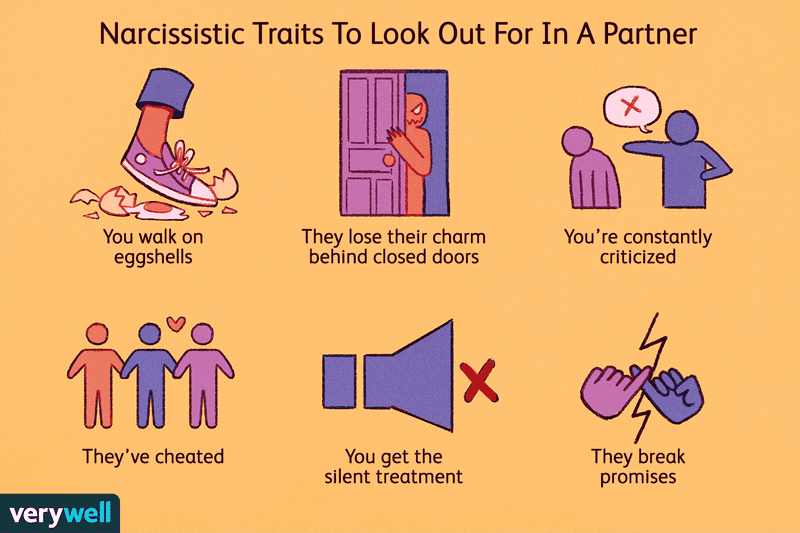
Charm can be a powerful, deceptive force, often mistaken for love. In my marriage, charm was the tool he wielded to maintain control, drawing me in with charisma while manipulating my emotions. His charm masked deeper intentions, obscuring the lines between affection and authority.
Recognizing charm as a tool rather than a trait was pivotal. It unveiled the truth that love isn’t about control but about freedom and mutual respect. His charming facade was a mask, hiding manipulative tactics designed to keep me compliant.
This insight was liberating. It allowed me to see through the charm, to understand that true love doesn’t bind or control but uplifts and allows one to flourish. Love, I learned, shouldn’t feel like a performance but a genuine connection rooted in equality.
6. Gaslighting doesn’t always sound cruel

Gaslighting in my marriage was subtle, insidious, and often masked as concern. It didn’t sound harsh or cruel; rather, it was wrapped in phrases that seemed caring but left me doubting my reality. Phrases like “Are you sure you remember it that way?” eroded my confidence over time.
This manipulation left me questioning my perceptions and intuition. It was a psychological warfare that undermined my self-trust, making me reliant on his version of events. Gaslighting made me believe I was overly sensitive or irrational, isolating me from my own truth.
Understanding gaslighting as a form of abuse was empowering. It helped me reclaim my narrative, trust my perceptions, and reassert my reality. I learned that trust in oneself is crucial, and any relationship that undermines it needs reevaluation. Awareness of gaslighting became my shield against manipulation.
7. Loneliness in a marriage is worse than being alone

Being married doesn’t necessarily mean you’re not lonely. In my experience, the isolation I felt within my marriage was more profound than any solitude I experienced on my own. Sharing a space with someone who is emotionally unavailable amplifies loneliness, turning it into a silent companion.
This loneliness was pervasive, existing in the pauses between conversations and the space between us at night. It was a stark reminder that physical proximity doesn’t equate to emotional connection. It taught me that being alone doesn’t mean being lonely; it can mean being at peace.
Choosing to leave was ultimately a quest for genuine connection, either with others or within myself. I realized that true companionship requires effort from both sides, not just a facade of togetherness. This revelation was a key step in my journey toward self-awareness and healing.
8. You can be strong and still get broken down
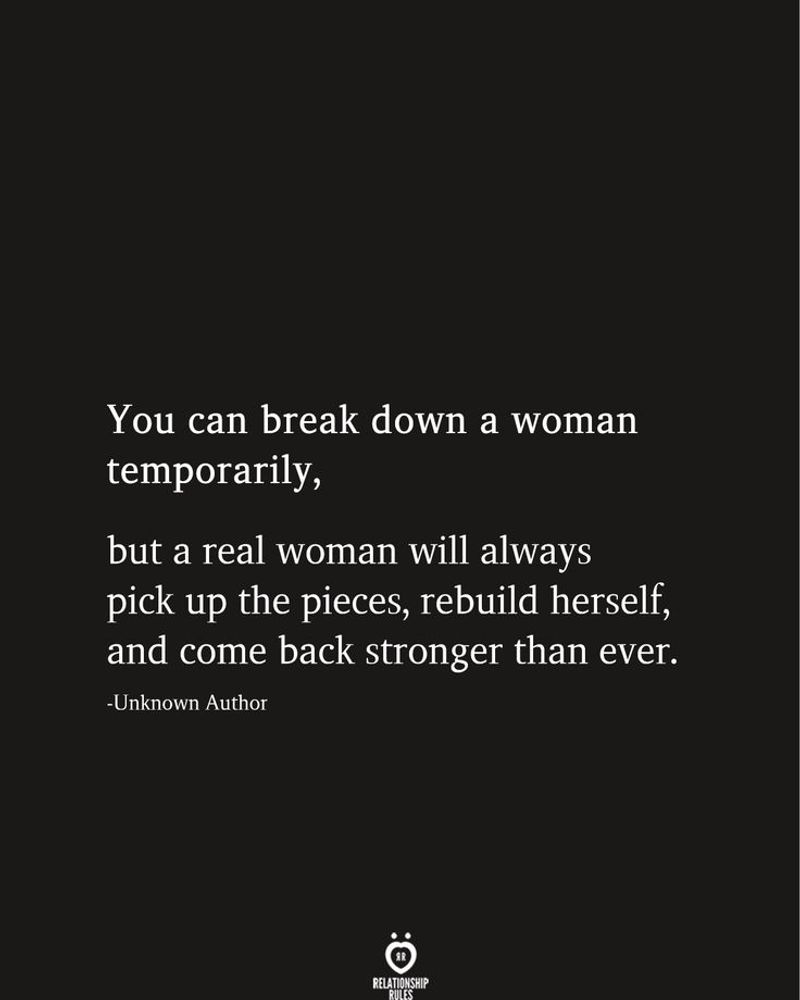
Strength is often misconstrued as unbreakability, but living with a narcissist taught me otherwise. Despite being strong, emotionally resilient, and independent, I found myself gradually worn down. The constant barrage of criticism, manipulation, and emotional neglect chipped away at my fortitude.
This realization was both humbling and freeing. Acknowledging my vulnerability didn’t diminish my strength; it painted a fuller picture of resilience. I learned that strength includes the ability to endure, adapt, and eventually rise from the ashes stronger than before.
This journey taught me that being strong doesn’t mean being immune to hurt. It means having the courage to acknowledge pain, seek healing, and continue fighting for self-worth. Embracing this understanding was integral to my recovery and empowerment.
9. No one changes if they don’t think they’re the problem
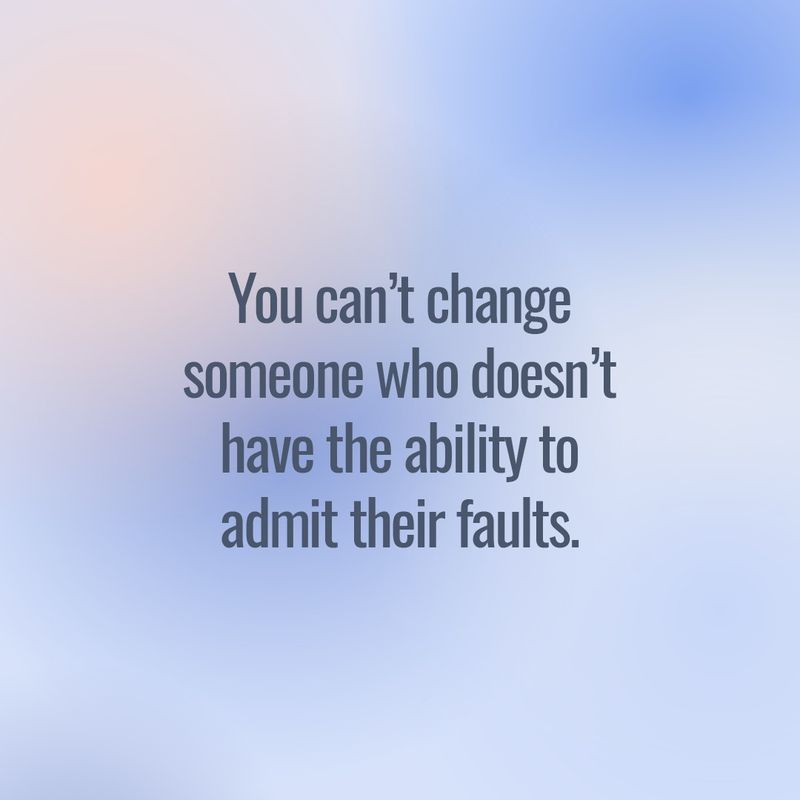
Expecting change from someone who doesn’t acknowledge their faults is a futile endeavor. Over the years, I hoped he would change, but without self-awareness, there was no incentive for him to evolve. His perception of self-perfection meant he saw no need to transform.
This understanding was a hard pill to swallow but essential for my growth. I learned that change is an internal journey, one that requires acknowledgment of personal shortcomings and a sincere desire to improve.
Waiting for him to change was like waiting for rain in a drought. Moving forward meant accepting that I couldn’t force change upon someone unwilling to recognize their flaws. This lesson helped me shift focus from changing others to improving myself, opening doors to healthier relationships.
10. Silence became its own form of abuse

In the latter years of my marriage, silence was used as a weapon. His refusal to communicate became a tool for control, instilling a sense of emptiness and isolation. It wasn’t the absence of words, but the heavy silence that suffocated any hope for resolution.
Silence can speak volumes, often louder than words. It perpetuates a cycle of anxiety and insecurity, leaving one to fill the void with self-blame and doubt. This form of emotional abuse is insidious, often overlooked, yet deeply damaging.
Recognizing silence as a form of control was liberating. It taught me the value of open communication and the importance of being heard. Now, I choose to embrace dialogue over silence, understanding that healthy relationships thrive on mutual exchange, not oppressive quiet.
11. I stopped recognizing myself long before I left

Living with a narcissist, I found myself gradually losing touch with who I was. The constant need to accommodate his needs left little room for my own growth. Over time, I became a shadow of myself, defined by his perceptions rather than my own.
This loss of self was a gradual erosion, unnoticed until I reached an emotional breaking point. Realizing I had become unrecognizable to myself was both terrifying and motivating, pushing me to reclaim my identity.
Leaving was about rediscovering the person I’d buried under years of suppression. It taught me the importance of staying true to oneself, regardless of external pressures. This journey back to self-recognition was painful but essential for my healing and personal evolution.
12. I wasn’t “too emotional”—I was being emotionally starved

Throughout my marriage, I was often told I was “too emotional,” a label that made me question my reactions and feelings. However, I came to understand that my emotional state was a response to being starved of genuine affection, empathy, and validation.
This emotional deprivation was a form of neglect, leaving me feeling needy and vulnerable. Realizing I wasn’t overly emotional but rather deprived of emotional sustenance was a revelation that shifted my perspective.
Accepting my emotions as valid allowed me to seek healthier relationships where my feelings were valued, not dismissed. I learned that emotions are signals, guiding us toward what we need, and should not be ignored or belittled. This insight brought me closer to emotional freedom and fulfillment.
13. Walking on eggshells became my default

Living with a narcissist often felt like navigating a minefield. I found myself constantly on guard, anticipating his moods and reactions to avoid conflict. This perpetual state of vigilance became my norm, leaving me exhausted and anxious.
Walking on eggshells is an exhausting existence, where peace relies on avoiding triggers rather than addressing issues. This realization made me understand that a healthy relationship shouldn’t require constant caution and fear of overstepping boundaries.
Breaking free from this pattern meant embracing open communication and trust. It taught me that true stability comes from mutual respect and understanding, not the fear of disturbance. This shift was crucial for reclaiming my peace and fostering healthier connections.
14. I confused trauma bonding with love
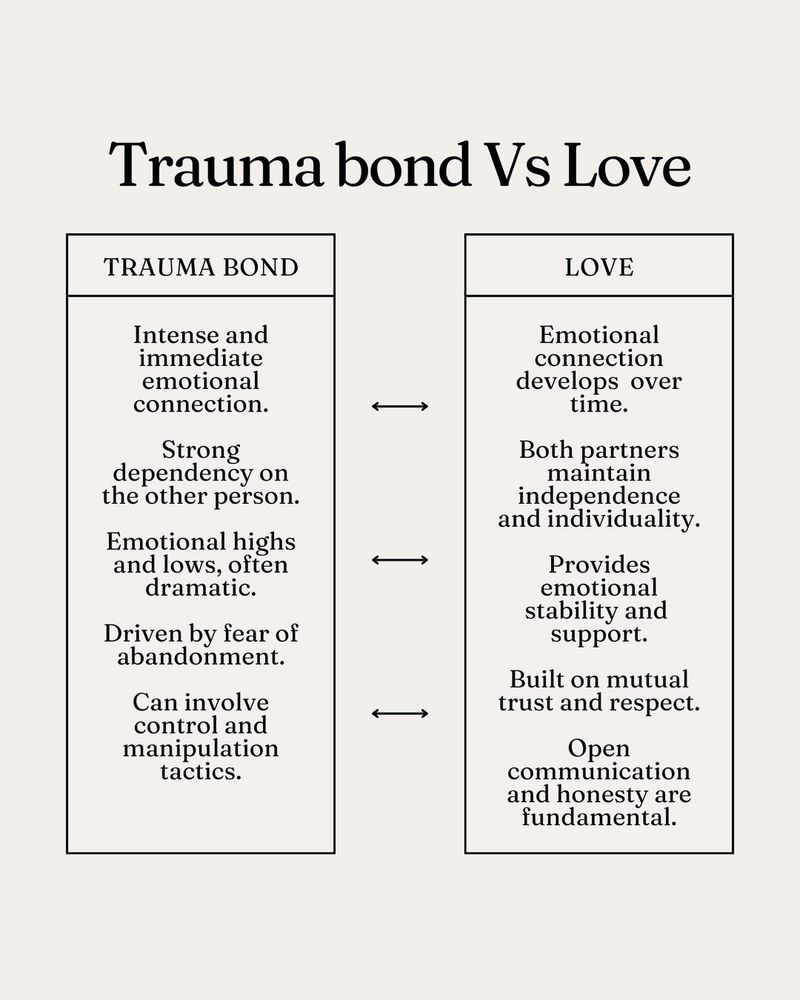
Trauma bonding kept me tied to a relationship that was hurting me. The intense emotional highs and lows created an illusion of love, binding me to a cycle of abuse and reconciliation. This chaotic pattern felt familiar and compelling, mistaking chaos for passion.
Realizing that love shouldn’t hurt was a pivotal moment. True love is a steady force, not a rollercoaster that leaves you dizzy and disoriented. Understanding the difference between trauma bonds and real love was vital for my emotional liberation.
This clarity allowed me to untangle my emotions, recognize unhealthy patterns, and seek relationships based on genuine care and stability. It was a lesson in self-awareness and a step towards a healthier, more fulfilling love.
15. My needs weren’t too much—they just weren’t convenient for him

Throughout my marriage, I often felt my needs were excessive or inconvenient. His dismissive attitude made me believe that wanting love, attention, and respect was asking for too much. This perception skewed my understanding of what I deserved in a relationship.
I learned that my needs were valid and reasonable, but they conflicted with his agenda. Acknowledging this discrepancy was essential to reclaiming my self-worth and understanding that compromise shouldn’t mean neglecting oneself.
Realizing that a healthy relationship accommodates both partners’ needs helped me redefine what I sought in love. I learned to prioritize my desires without guilt, understanding that mutual respect is the foundation of a thriving partnership.
16. I had to grieve who I thought he was

Grieving the person I believed he was became an essential part of my healing. The image I held of him was a carefully constructed facade, a blend of who I hoped he could be and the reality I refused to see. Letting go of this illusion felt like losing a part of myself.
Facing the truth meant acknowledging his shortcomings and my own denial. It was a painful yet necessary step in moving forward, allowing me to see the relationship for what it truly was.
This grief process was cathartic, freeing me to embrace reality and seek genuine connections. It taught me that holding onto illusions only prolongs pain, while acceptance paves the way for authenticity and true healing.
17. Healing meant facing hard truths I’d been avoiding

Healing from my marriage required confronting uncomfortable truths I had long avoided. This meant acknowledging my own role in enabling the dynamics and understanding the deep-rooted patterns that kept me stuck. It was a journey of self-discovery and acceptance.
Facing these truths wasn’t easy but it was necessary for genuine healing. It allowed me to break free from cycles of blame and resentment, shifting focus towards personal growth and accountability.
This process taught me that healing isn’t just about leaving the past behind; it’s about integrating experiences as lessons for future wisdom. Embracing hard truths empowered me to rebuild with integrity and mindfulness, paving the way for a more authentic life.
18. Leaving didn’t make me a failure—it made me free
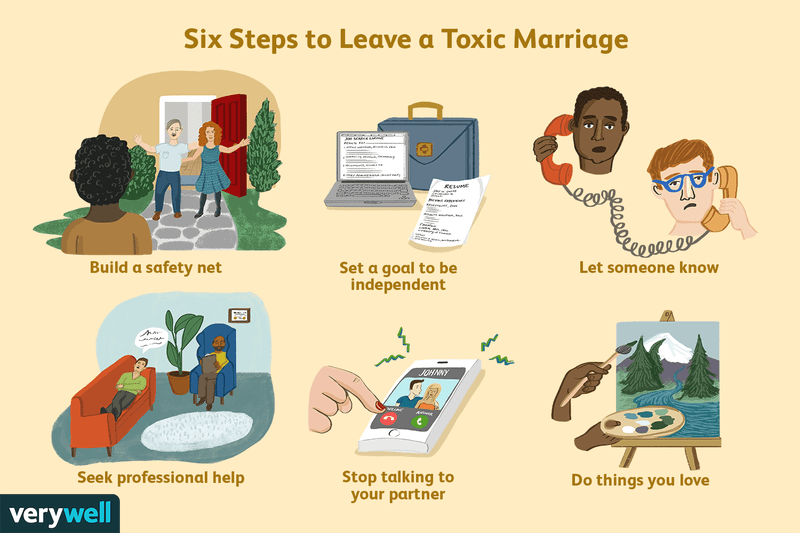
For a long time, leaving felt like admitting defeat. I feared that walking away meant I had failed, that I hadn’t tried hard enough to make things work. However, staying in a toxic marriage was a greater disservice to myself.
Leaving was an act of courage rather than failure. It was a decision to choose freedom over confinement, self-love over self-sacrifice. Embracing this new chapter allowed me to redefine success on my terms.
This choice marked the beginning of a journey towards self-discovery and empowerment. It taught me that freedom is a form of success, that stepping away from negativity is victory in itself. Leaving wasn’t the end; it was the start of a life filled with possibilities.







